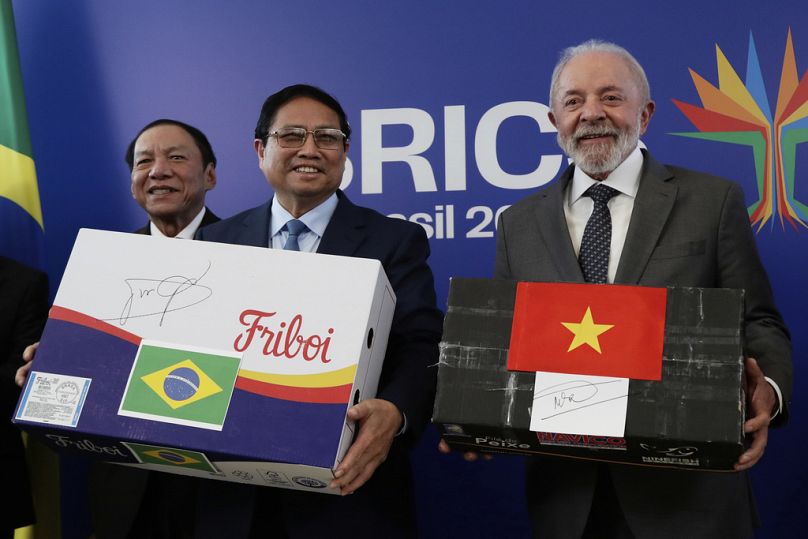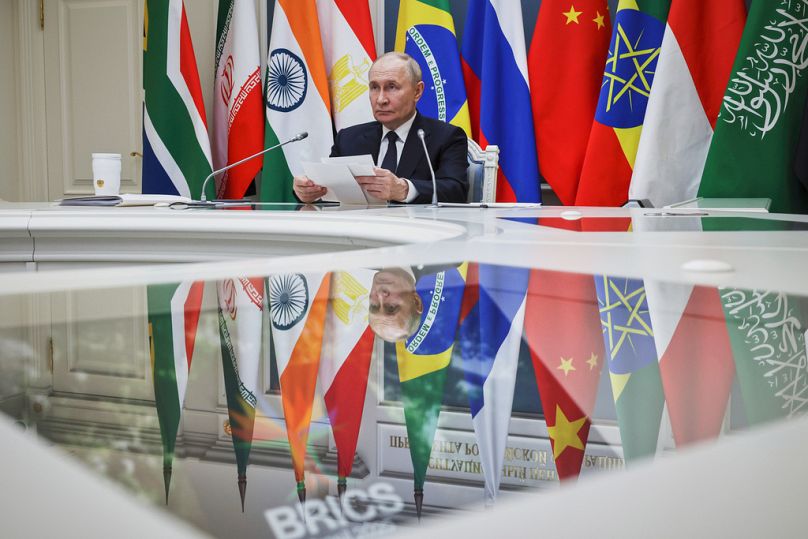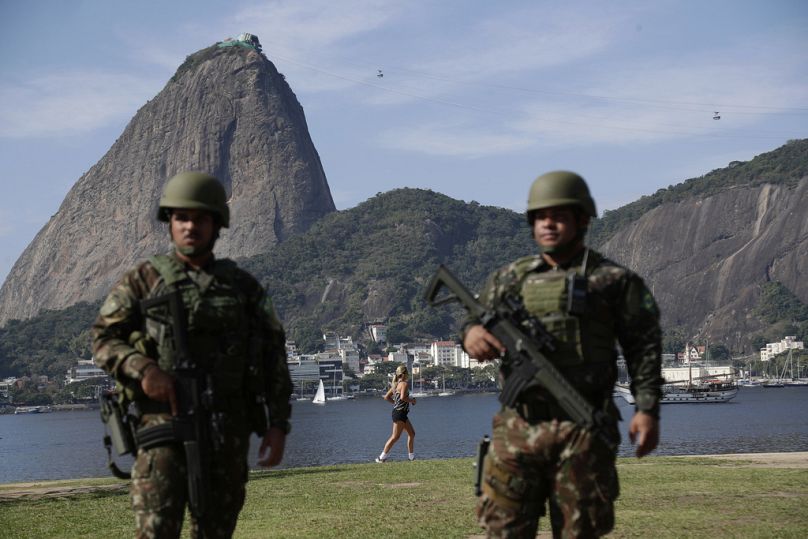Leaders from BRICS nations have gathered in Rio de Janeiro, Brazil, for a two-day summit where critical issues such as Israel’s assault on Iran, the worsening humanitarian crisis in Gaza, and trade tariffs introduced by former U.S. president Donald Trump will likely be addressed carefully.
Experts noted that with BRICS expanding significantly last year, internal divisions could hinder its effectiveness as a new global power center. Additionally, they interpret the relatively modest focus of this year's summit as a strategy for members to avoid drawing attention from Donald Trump during his time in office.
Brazilian President Luiz Inácio Lula da Silva is placing several of his main agenda items—including discussions on artificial intelligence and climate change—at the forefront of conversations with major global leaders who are present at the event.
For the first time since coming into office in 2012, Chinese President Xi Jinping was absent from the summit due to prior commitments. Instead of attending personally, the 72-year-old head of state dispatched Premier Li Qiang to act as China’s representative at the event.
Russian President Vladimir Putin is absent as well, reportedly to evade potential detention due to an outstanding warrant issued by the International Criminal Court—a body that Brazil is part of—according to statements from the Kremlin. Instead, Foreign Minister Sergei Lavrov has attended in person, while Putin gave his speech remotely through a virtual connection to the gathering.
In his Sunday address, Lula stated, "We are seeing an unprecedented decline in multilateralism," adding that the summit was being held "under the harshest global conditions" compared to the previous three occasions when Brazil played host. He urged the nations involved to support peace efforts and act as mediators in resolving disputes.
"If global leadership fails to represent today’s multi-centered world order, then BRICS must step forward and help reshape it," stated Lula in his introductory speech.
The measured approach anticipated in Rio de Janeiro represents a shift compared to last year’s gathering led by Russia in Kazan, where the Kremlin aimed to create alternative financial networks independent of U.S.-controlled platforms—initiatives intended to bypass Western penalties enacted following Moscow’s large-scale military offensive against Ukraine starting February 2022.
The summit is anticipated to result in three jointly issued declarations, as reported by individuals participating in the discussions. Heads of state are getting ready to possibly support documents addressing the humanitarian situation in Gaza, an area that has faced ongoing attacks from Israel beginning in October 2023.
BRICS leaders are anticipated to issue collective statements addressing Israel's assaults on Iran, alongside a general concluding statement touching upon Russia's conflict in Ukraine and various disputes across the Middle East.
Brazil, as the chair of the group, has identified six key focus areas for the summit: international collaboration in health services; commerce, investments, and financial matters; addressing climate change; regulating artificial intelligence; promoting peacebuilding and safety measures; and strengthening institutions.
For Lula, the summit offers a timely break from a challenging home front, characterized by declining approval ratings and tensions with Congress.
This gathering further serves as a chance to move forward discussions and pledges related to climate action and environmental protection ahead of November's COP 30 summit, which will take place in Belém, a northern Amazonian city in Brazil.



